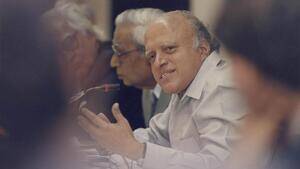

The world's population has doubled in fifty years. From 1923 to 1973, hundreds of thousands of people died due to starvation, poverty and malnutrition on a regular basis. This is what made the Green Revolution inevitable worldwide. The movement, which began in Mexico in the 1940s under the leadership of the prominent agronomist Norman Ernest Borlaug, later spread throughout the world. In 1943, about 4 million people died of starvation during the Bengal food shortage in India. India was one of the first countries to embrace the Green Revolution as a lesson from this tragedy.
The Green Revolution in India, which started in 1965 and was spearheaded by M S Swaminathan, a Malayali agronomist has been a source of pride for our country ever since. The success of the Green Revolution was due to a significant increase in productivity through the use of high-yielding seeds. Additionally, there was a practice of cultivating two or three times on the existing agricultural land. Dams and canals were constructed for irrigation. Swaminathan's influence on making agriculture in India a science is indelible. Swaminathan, who grew up in a Mankombu family in Kuttanad surrounded by water and agriculture, must have learned from nature as a child to sow gold in the fields and reap hundreds. After the Green Revolution, India has never experienced a food shortage. The first person we should thank is this agronomist who remained dedicated even during the time of Covid. The unique genius who led India to agricultural self-sufficiency has passed away in Chennai at the age of 98.
Swaminathan was recognized as one of the 20 most influential people in Asia in the 20th century. His full name is Mankombu Sambasivan Swaminathan. He belonged to the Mankombu family, which was one of the largest families in Kuttanad a century ago. He was born and schooled in Kumbakonam. After completing his BSc at Maharaja's College, Thiruvananthapuram, and earning a degree in Agriculture from Madras Agricultural College, he joined the Indian Agricultural Institute in Delhi. Although he was offered a position abroad, he studied in the Netherlands on a UNESCO scholarship and returned to his homeland after obtaining a PhD from Cambridge and completing post-doctoral research at the University of Wisconsin. His decision to stay in India, despite a relatively modest salary at the time, ultimately benefited millions of farmers in India and the labour force working on the land, including women. In 1987, he was awarded the World Food Prize, often referred to as the Nobel Prize in Agriculture. He received numerous other awards and was honoured with the Padma Bhushan by the country. M S Swaminathan's passing is a great loss not only for Kerala but for the entire country.